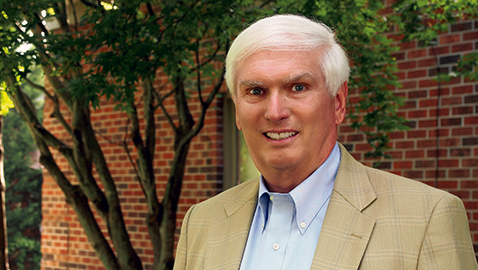By John J. Duncan Jr.
In my column last week, I wrote that my father received about 90% of the vote in Knoxville’s African-American precincts in his three races for mayor.
He had led the peaceful integration of Knoxville during some very difficult years in race relations in the late 50s and early 60s.
All through my life, and even many years after Daddy passed away, Black Knoxvillians would tell me how he had helped them or their families.
I still remember how Ed Freeman, when he was an old Black lawyer, told me, more than once, how Daddy took him around to introduce him to all the judges after Mr. Freeman passed the bar exam in the 1950s.
I remember when my dad was very near death in 1988, Raymond Smith, a very popular Black man, broke down and cried like a baby, saying he didn’t know what he was going to do if Daddy died.
Raymond said: “I won’t have anybody to love me; I won’t have anybody to fuss at me when I mess up.”
Knoxville’s Black community loved my dad, and this carried over to me. I represented the largest Black Church and the largest Black-owned construction company and had many Black clients when I was a lawyer.
Then, after I became judge of the Knox County Criminal Court, I tried to help, in a proper legal way, many Black families whose sons had gotten into trouble.
Congressman Phil Roe came to me on the House floor one day and told me he had spoken at the state prison in his district that weekend.
He said a man I sentenced to prison asked him to say hello to me and said I had been very fair to him.
I tried to treat everyone that way, but when President Obama was in office, one of my Washington staffers said an angry caller had told him he wished I would forget being a judge and become more like a prosecutor.
When I was in practice, most lawyers in Knoxville had very general practices, as I did, but I had done a significant amount of criminal defense work. Most criminal court judges around the county seem to have been prosecutors first.
My father was an active, well-known Republican even before he became mayor. But city elections are non-partisan.
When he started running on the Republican ticket, his Black vote fell off to 45 to 50%. My Black vote was 44 to 52% in my first election to Congress.
We were both very pleased, because Republican presidential candidates in those same precincts usually got only three or four percent. President Trump did far better in African-American precincts than Bush, McCain, or Romney did.
However, the four times I just had independent candidates run against me, with no Democrat on the ballot, my vote in the Black precincts rose to 85 to 90%.
It was always clear to me that all Democrats had to do was go into the Black churches the Sunday before the election.
I felt Republicans could slowly build some support if they would go to the Black churches and other events throughout the year, and keep on going, but most Republican candidates just do not try hard enough in the African-American community.
I feel fairly certain that I am probably the only Republican member of Congress who was ever the Grand Marshal of a Martin Luther King Day Parade as I was in Knoxville one year.
I still have many friends in the Black community, and that is part of the reason I am so concerned about the way race relations have gone in this Country over the last year or two.
Slightly over a year ago, the Gallup Poll published a report headlined “U.S. Perceptions of White-Black Relations Sink to New Low.”
Far too many young people have been brainwashed by left wing college professors and far-left extremist organizations like Antifa and Black Lives Matter into believing this is a racist nation, when it is really the least racist nation in the world.
Most of the 1.3 billion in Africa would move here tomorrow if they really possibly could.







